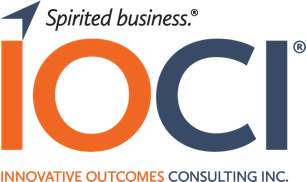
It’s certainly not edgy to say we live in uncertain times.
Whether we view current events in the headlines as positive or negative, uncertainty stems from change – and that’s a constant in business.
So navigating a changing landscape is baked into a leader’s skill set. But what does it mean to lead in 2018 specifically?
It most likely means you’re the one who has to change. Driving results is no longer the mindset that leads your people to the promised land.
“In an uncertain world, almost by definition, you can’t figure it out – that’s the whole problem,” Jim Whitehurst, CEO of Red Hat, told Forbes. “The management problem needs to be less about ‘let me be a smart strategist’ and much more about ‘how do I build the capabilities in my organization to be able to react quickly when things happen?’”
Your employees have changed
 The World Health Organization (WHO) recently announced a record number of young people suffer from anxiety disorders or depression. It’s not the snowflake syndrome, WHO assures – in fact, it’s just the opposite. Today’s new workforce holds such excessive standards for themselves that they’re collapsing under the weight. They are their own harshest critics and the mindset cycles into nearly every part of their lives: what they wear, how they score on performance reviews, what they should own.
The World Health Organization (WHO) recently announced a record number of young people suffer from anxiety disorders or depression. It’s not the snowflake syndrome, WHO assures – in fact, it’s just the opposite. Today’s new workforce holds such excessive standards for themselves that they’re collapsing under the weight. They are their own harshest critics and the mindset cycles into nearly every part of their lives: what they wear, how they score on performance reviews, what they should own.
Thomas Curran, Ph.D., from the University of Bath, and Andrew P. Hill, Ph.D. at York St. John University, dove into this idea of increased perfectionism among college students in America, Canada and the United Kingdom and found the same results. What’s more, social pressures to stack up to your peers seems to be leading this trend. That’s why Curran and Hill say effective leaders address their employees’ fear of failure.
In the office, it boils down to helping your staff focus on what they will learn from new clients, new projects, new processes. Fill their imaginations with the possible to steer them away from nightmares of what can go wrong. Look for the procrastinators – that’s a strong signal that person is afraid to start – and help them set goals that reflect perseverance, flexibility and diligence.
And when something goes sideways, a little grace can save the day.
What you must change, too
But to make sure these approaches have an effect, you must dig a little deeper into your own motivations. Your employees need to trust you before they take your wisdom nuggets to heart, and there’s no substitute for empathy to make that connection.
You need to genuinely understand what your staff feels, imagine yourself in their shoes … sometimes, yes, read their minds.
No wonder empathy rose to the top of the list as the most critical driver of overall performance on Development Dimensions International (DDI) leadership study for the first time in 46 years. It beat out enhancing esteem, encouraging involvement and clarifying details. Empathy, in 2018, is the cornerstone of teamwork, assures Marcel Schwantes, the founder of Leadership From the Core and a regular contributor to Inc.com.
The bad news? DDI also found that only four out of 10 frontline leaders are proficient or strong on empathy, and there’s been a 34 percent to 48 percent decline in empathic skills among recent college graduates in the last eight years. Which is good news for folks who are willing to work with a coach to polish this skill.
Ready for some personalized help with leading in uncertain times? IOCI can assist with executive coaching and leadership development, ongoing professional learning and business development – because times continue to change and everyone needs a partner to help navigate those changes. Contact IOCI today.
Marialane Schultz is the founder of IOCI. She helps individuals and organizations perform at their best, do meaningful work and be impactful through customized coaching and consulting engagements.

